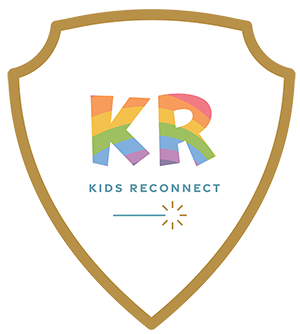
Our team’s superhero child therapist Rita Motta shares some facts about
Eye Movement Desensitization and Reprocessing (EMDR).
Instructions
Are you curious about EMDR? Great! We love the curiosity Superpower.
Take our interactive questionnaire and see how you fare..
These questions address some common myths about EMDR.
Is the correct answer YES or NO? Click on each card to find out.
Are you curious about EMDR? Great! We love the curiosity Superpower.
Take our interactive questionnaire and see how you fare..
These questions address some common myths about EMDR.
Is the correct answer YES or NO? Click on each card to find out.
Question 1: Is EMDR hypnosis?
Is EMDR hypnosis?
No. EMDR is not hypnosis.
Some aspects of EMDR and hypnosis may appear similar, but they are different. In hypnosis, an individual enters an alternate state of consciousness, whereas, in EMDR, the client remains fully conscious and aware. Hypnosis also, most often, attempts to put the individual in a state of relaxation, but EMDR does not. EMDR is meant to reprocess and desensitize difficult memories (Gilligan, 2002).
Question 2: Does EMDR force children
to relive
their traumatic experience?
Does EMDR force kids to relive their traumatic experience?
No. When guided by a skilled and compassionate therapist, kiddos recall trauma in a safe space, then process and desensitize it.
Therapists most often come to the field with a desire to help those they work with.We carefully guide clients through processing and minimizing the negative associations and impacts of trauma.
Question 3: Is EMDR only appropriate to treat trauma that is severe and PTSD (posttraumatic stress disorder)?
Is EMDR only useful to treat trauma that is severe, or PTSD?
No. EMDR can be used to treat different types of traumatic experiences.
Trauma is a complex subject. However, in simple terms, there is “big T” (severe) Trauma and (not severe) “little t” trauma. EMDR can be effectively used to treat traumatic experiences, whether they are experienced as life-threatening or bodily-threatening (big T) or not (little t).
In this context, an important difference with severe trauma and posttraumatic stress disorder (PTSD) is that they may take longer and more resources to address.
Trauma and difficult memories fuel our negative core beliefs about ourselves and the world. EMDR helps us identify them and replace them with positive core beliefs, while minimizing the difficult somatic and cognitive impacts.
Question 4: Is EMDR backed by scientific research?
Is EMDR backed by science and research?
Yes. EMDR therapy is extensively researched and widely recognized as effective trauma therapy.
Not only does EMDR have a large research base, it has more than three dozen randomized controlled trials backing its therapeutic efficacy. There are countless academic papers and theses written on and backing the application and efficacy of EMDR with a variety of populations and demographics with varying degrees and types of trauma (EMDR Research Foundation, 2024).Question 5: Can EMDR therapy be used to help
kids and teens?
kids and teens?
Can EMDR be used to treat children and adolescents?
Yes. EMDR therapy is not just for adults. It can can be adapted and applied in a child-friendly way.
EMDR can be used to treat kids alongside play and art therapy, in fun ways!
See our blog post on preparing kids for EMDR therapy, where we share information on how EMDR can help your child process difficult memories and emotions in a gentle, fun, and encouraging way.
To sum it up
- EMDR is not hypnosis.
- EMDR does not force the client to relive their trauma.
- EMDR is not just for severe trauma and PTSD.
- EMDR is backed by research.
- EMDR is not just for adults — it is effective for kids, too!
How did you do on the questionnaire? We hope you learned something new today.
A special note about trauma
If you or your child are struggling with trauma, it is important to know that you can reach out for support to recover and heal. Resources are available.
If you are in Alberta and Kids Reconnect is not a viable option for you, the Alberta Health Services Mental Health Help Line is a 24 hour, 7 day a week, 365 days a year, confidential service that provides support, information and referrals to Albertans experiencing mental health concerns.
References
Meet the author
(an EMDR therapist)
(an EMDR therapist)
Meet the editor
(a writer and designer)






